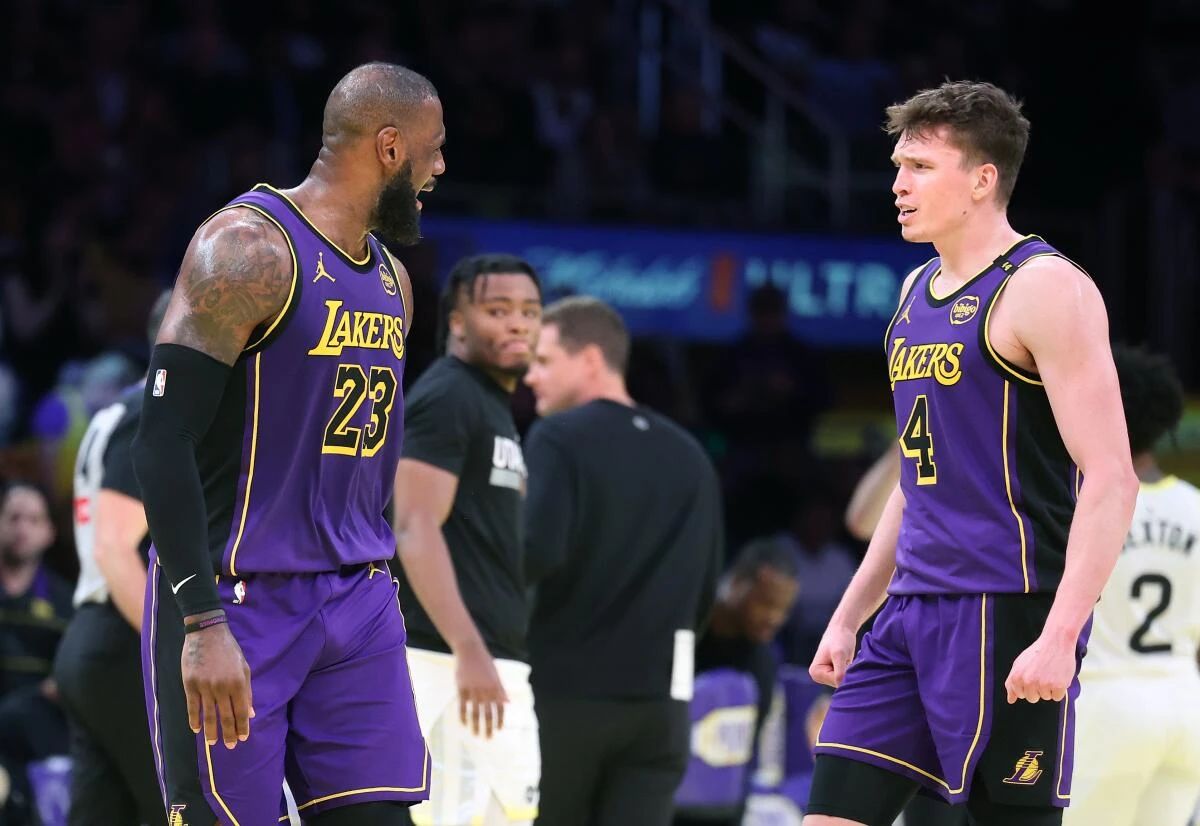LeBron announced he’s taking a break from social media, stating he won’t post anything until further notice.
As a social media megastar, casual posting has long been part of LeBron’s daily life. He has 50 to 60 million followers on X and a whopping 150 million on Instagram.
Historically, LeBron had a habit of stepping away from social media for two to three months during the playoffs, returning only after the season ended. This mid-regular-season exit is a first.
On the surface, LeBron’s sudden hiatus seems triggered by a friend’s post that resonated with him. But a deeper dive suggests he’s grappling with anxiety over his role on social media.
That friend is Rich Kleiman, Kevin Durant’s longtime business partner. Yesterday, Kleiman shared a candid thought:
“The world is going downhill—full of hate and negative energy everywhere. Yet national sports media still takes joy in publishing negative stories, thinking that’s what grabs attention. Sports should bridge people, especially in a divided world—they should be our last sanctuary. Why can’t media lead by example and make sports a place to escape society’s toxicity?”
Kleiman’s post ended with a shout-out to LeBron: “Today’s sports media is unwatchable, except for the Olympics and that tactical podcast LeBron does with JJ Redick.”
LeBron immediately reposted, then added his own announcement: “Heads up, everyone! I’m taking a social media break for a bit. Stay safe out there.”
Kleiman didn’t specify a story that sparked his rant, but whatever it was, it clearly pushed LeBron—who’s no stranger to social media—to an unusual act.
We’re bombarded by negative news and hot topics daily, so it’s odd: what exactly pissed LeBron off? Aren’t we used to the chaos by now?
Plus, the timing is fishy: the day before, he’d dropped his 22nd signature shoe—a blue-green-and-pink colorway evoking his Heat days—prime time for promotion.
Or maybe he’s setting an example, using a playoff-era move to rally the Lakers for another title push? The day he announced, Max Christie hit nine threes for 37 points, leading LA to a six-game win streak and third in the West.
But since his move followed Kleiman’s rant, it’s safer to see it as a statement of frustration. This social media veteran just went full-on passionate rebel.
The issue bothering Kleiman and LeBron is baked into modern journalism: bad news travels fast. That’s true in the mobile age, but it was also true in the print and TV eras.
Media is an industry, especially in the U.S. It chases profit, so it prioritizes what gets clicks—what we now call “traffic.”
As a basketball player, LeBron checks hoops news out of instinct, just like NBA players used to watch ESPN postgame or read newspaper recaps pre-cellphone.
Phones just eliminated the delay between games and commentary; the core dynamic hasn’t changed. When Kleiman talks about “coverage,” he means commentary. Games are objective, but players care about how their performance is judged.
LeBron gets mostly positive reviews—his age-defying play is unprecedented. But he’s still wrestling with identity anxiety.
The internet splits people into observers and the observed. Celebs and newsmakers like LeBron are in the latter camp. Online, language is blunt, and people get pigeonholed into single labels—roles that grab attention via contrast.
LeBron has many identities: a 22-year hoops legend, a husband, a dad, a wine enthusiast, and more. When he pushed to get his son Bronny into the NBA, he was labeled “the greatest player ever,” clashing with Bronny’s readiness for the league. If we saw him as a dad rooting for his kid, it’d make sense—but that’s not clickbait.
In the mobile age, anyone can be “observed.” The more ordinary you are, the weirder the labels get—and the bigger the contrast, the more traffic.
LeBron is a walking traffic magnet. There are ordinary things he can’t do or say—like Kleiman said, one wrong word, and you’re baited.
That’s exhausting, especially if you love scrolling.
Taking a social media pause to recharge? Not a bad move. If you can’t change the world, change your space.
